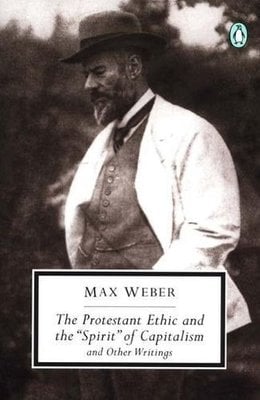
Alternately, neglecting one’s beruf and engaging in idleness amounts to shirking the will of God and displays a sure sign of damnation.

By assiduously performing one’s beruf, a Puritan fulfills two tasks: first, he obeys a holy commandment regarding his duty on earth and, second, he demonstrates his divine election to the afterlife. That is, the word beruf referred to a type of practice or labor considered both one’s personal vocation and the work that one is called by God to perform. The word only appears in the Christian liturgy following the Protestant Reformation and proves difficult to translate because the idea itself has since become disaggregated. This connection lies in the German word beruf, an amalgam of what today we deem one’s vocation or profession or calling. Though such a positive view of labor seems intuitive today, it is only because we have forgotten about the major mechanism responsible for the connection between work and godliness. They do this because such behavior provides a visible sign of one’s grace confidently and constantly fulfilling one’s vocational duty to God marks you as one of the chosen. As a result, they search for possible signs of their election, both in order to outwardly demonstrate their status as one of the chosen as well as to convince themselves of their own guaranteed entrance into heaven.Ĭalvinist behavior is thus conducive to capitalism: they work tirelessly and reinvest accumulated wealth into their endeavors. Calvinists, therefore, live in constant fear. Each human’s fate has already been decided as blessed or condemned and neither human effort nor divine sacrament may be employed to ensure passage to the kingdom of heaven. According to Weber, this process occurs via the Calvinist concept of predestination, in which heaven is reserved for an elect and predetermined few ( certudo salutis), and the rest of humanity is doomed to damnation. This essay will explain Weber’s central thesis before placing it in dialogue with Hegelian and Marxist modernization theories.īy selling as blessed the concepts of work and wealth as blessed, “ascetic Protestantism” – most specifically Calvinism, Pietism, Methodism, and Baptism – produces an environment amenable to the development of capitalism. Rather, he argues that Puritan ideology provided a favorable environment for the rise of capitalism. Though critics quickly attacked him for espousing a spurious causal mechanism, this was not his intention.

In The Protestant Ethic and the Spirit of Capitalism, Max Weber illustrates a relationship between ideology and economic structure.


 0 kommentar(er)
0 kommentar(er)
